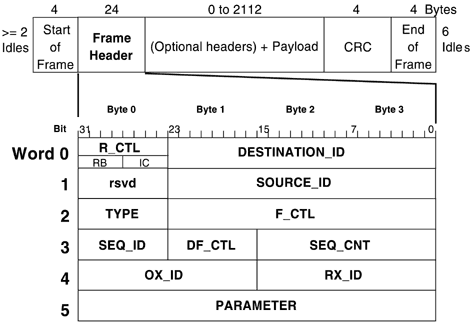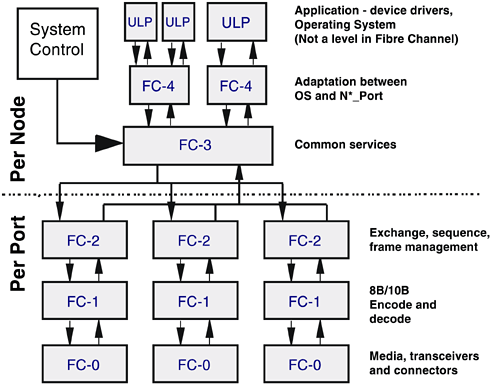2.5 FC-3: Common Services
| The FC-3 level, located at the center of the functional levels, concerns itself with functions spanning multiple N_Ports. The FC-3 level is the single point in the architecture through which all traffic must flow in both directions. The FC-3 level will contain services that are common (available) to all ports on a node. A node may have several ports. A node may also have several ULPs and FC-4 level mappings. However, there is only one FC-3 Common Services level per node. The FC-3 level can manage a set of tables holding the login information for other active ports. Each port on the FC-3 level knows which ports are busy and which exchanges they are busy with. Figure 2-12 shows where the FC-3 level fits into the overall scheme of all the Fibre Channel levels. Figure 2-12. Frame Header Structure Currently there are three functions defined within the FC-3 level standard:
The FC-3 level knows nothing about the topology of Fibre Channel or the physical signaling at the lower levels. This is handled by FC-1 and FC-2 levels. FC-3 understands if there are multiple ports attached to a node and if they may participate in multiport operations like multicasting. Knowing which ports are busy allows the FC-3 level to route exchanges between two N*_Ports and FC-4s. Figure 2-13. FC-3 Common Services Level |
EAN: 2147483647
Pages: 53

